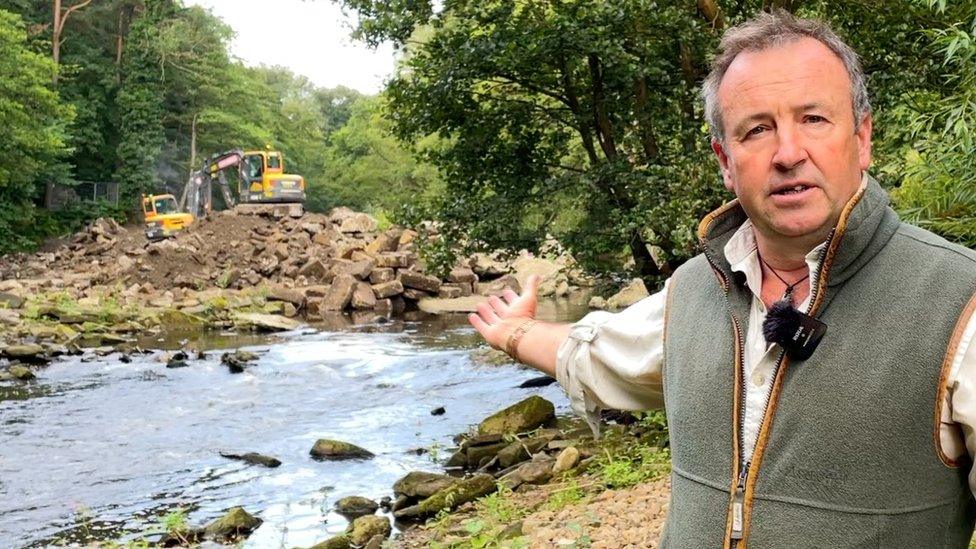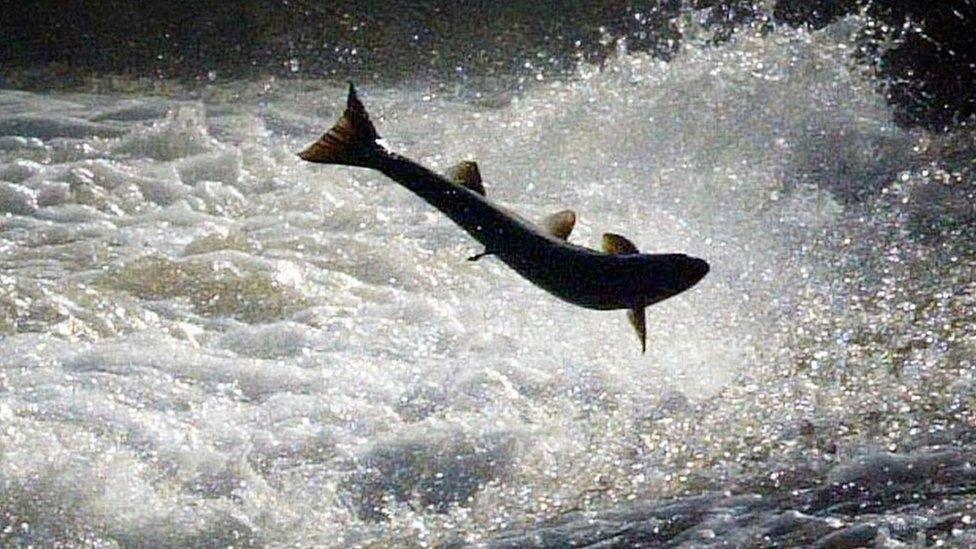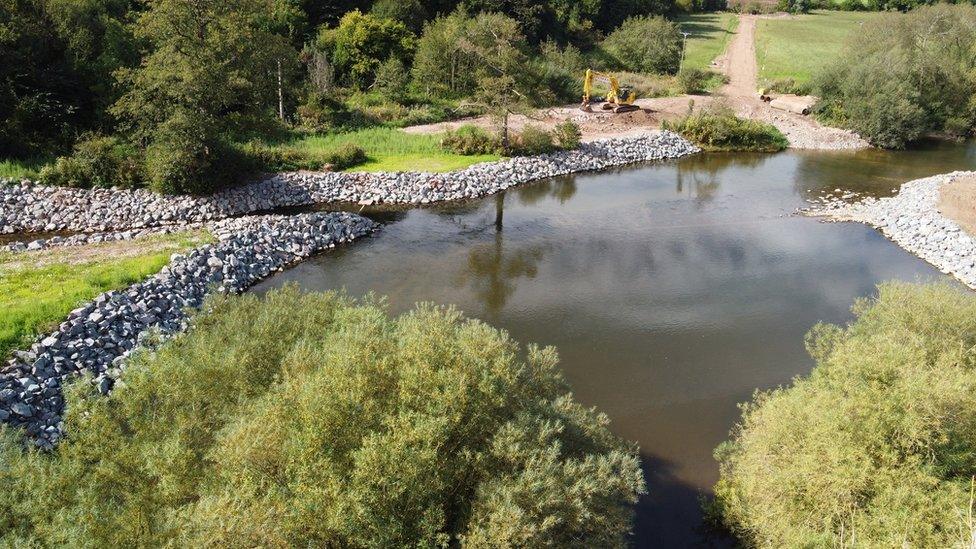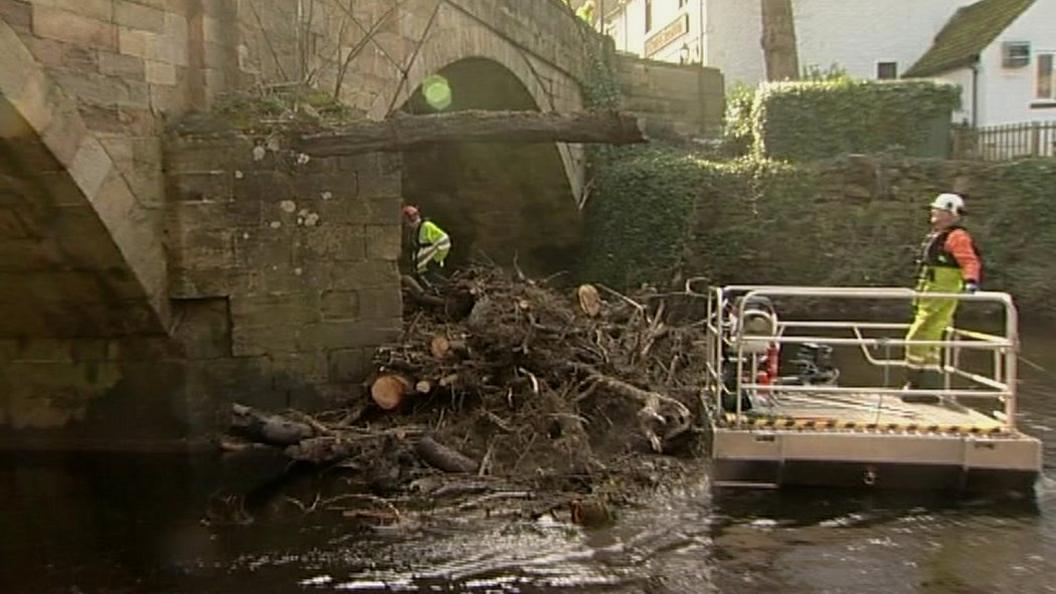North Yorkshire: River Nidd weir removal aims to boost wildlife
- Published

Jonathan Grey, of the Wild Trout Trust, said the weir's removal would 'restore natural processes'
An 18th Century weir is being dismantled in a bid to increase the variety of aquatic species living in part of a Yorkshire river.
Removing the River Nidd's Scotton Weir will open up 11 miles (18km) more river for salmon, sea trout and European eel, the Wild Trout Trust said.
The weir had disrupted the river's natural flow for centuries, it said.
Prof Jonathan Grey, from the trust, said allowing the river to run naturally benefited all wildlife.
At 246ft (75m) wide and 13ft (4m) high, Scotton Weir has stood at the entrance to the Nidd Gorge, which is an Area of Outstanding Natural Beauty, for about 200 years.
However, Prof Grey, the aquatic ecologist managing the weir removal, said it was time for a change.
"Restoring natural processes will alter the flow and shape of the river, which in turn will change the nature of the river bed," he said.
"This will provide varied habitats for invertebrates to colonise, which in turn will provide food for bird species, for instance."

Migratory fish like salmon need to move up and downstream throughout their lives
The weir, near Knaresborough, was breached during floods in 2019 and the charity said its safe removal would stop it from disintegrating gradually and damaging the riverbank.
The £64,000 Scotton Weir project has been funded by the European Open Rivers Programme.
It is thought to be the largest weir removal in the UK, according to the Wild Trout Trust.
In the UK, there is at least one artificial barrier for approximately every mile (1.5km) of stream, with only 1% of rivers free from artificial barriers, the trust added.
In June, the Environment Agency said Atlantic salmon stocks were reaching "crisis point" in England because of climate change.

Follow BBC Yorkshire on Facebook, external, Twitter, external and Instagram, external. Send your story ideas to yorkslincs.news@bbc.co.uk, external.
Related topics
- Published15 October 2021

- Published13 March 2016
